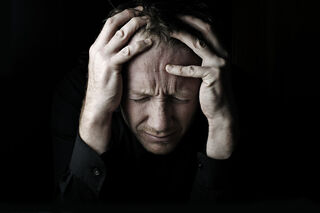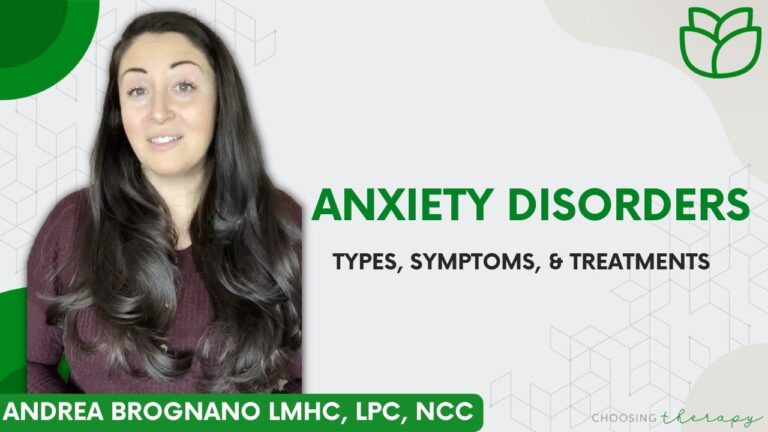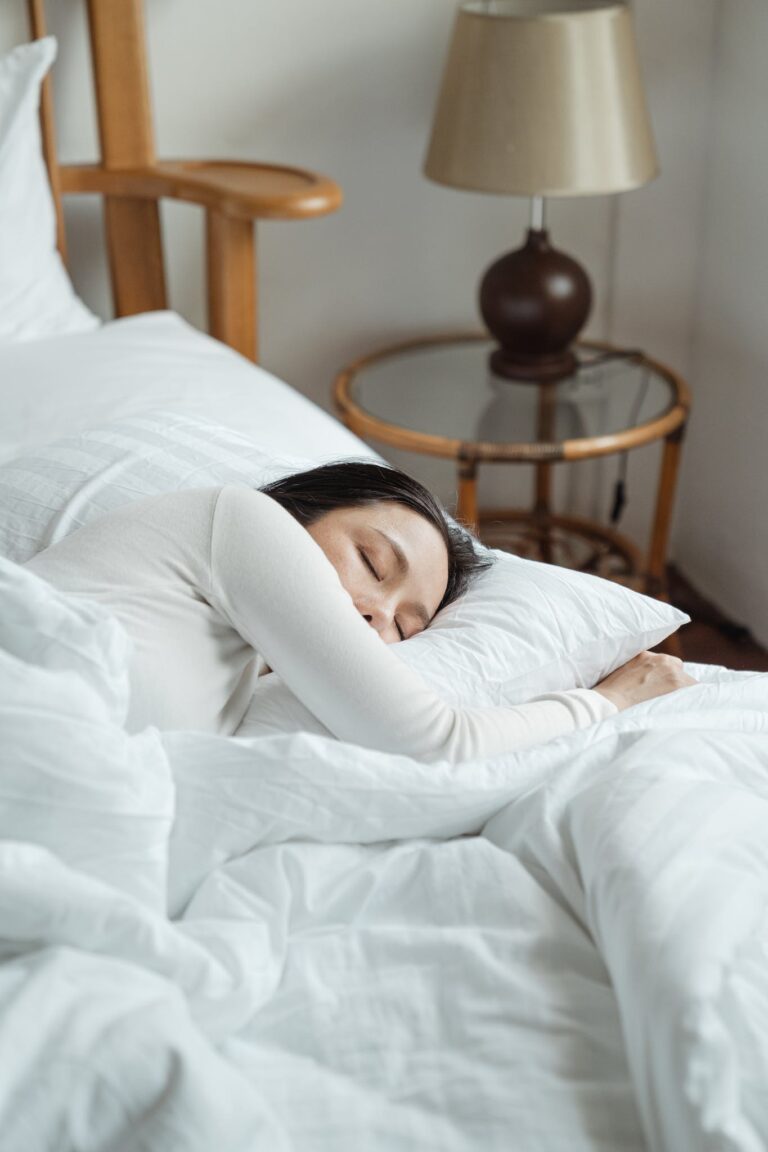The Pros and Cons of Sleep Tracking Apps and Devices
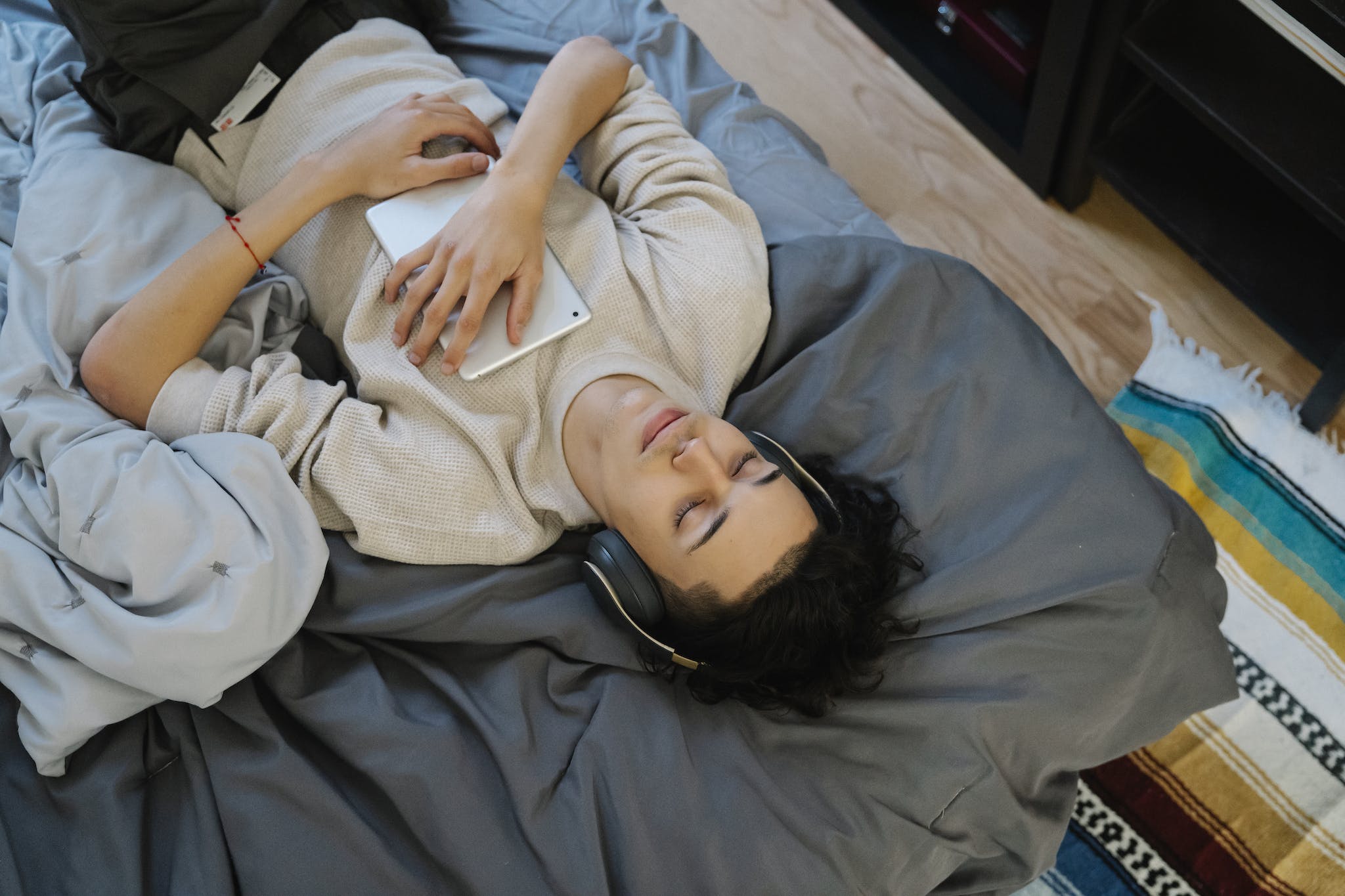
The Benefits of Utilizing Sleep Tracking Technology
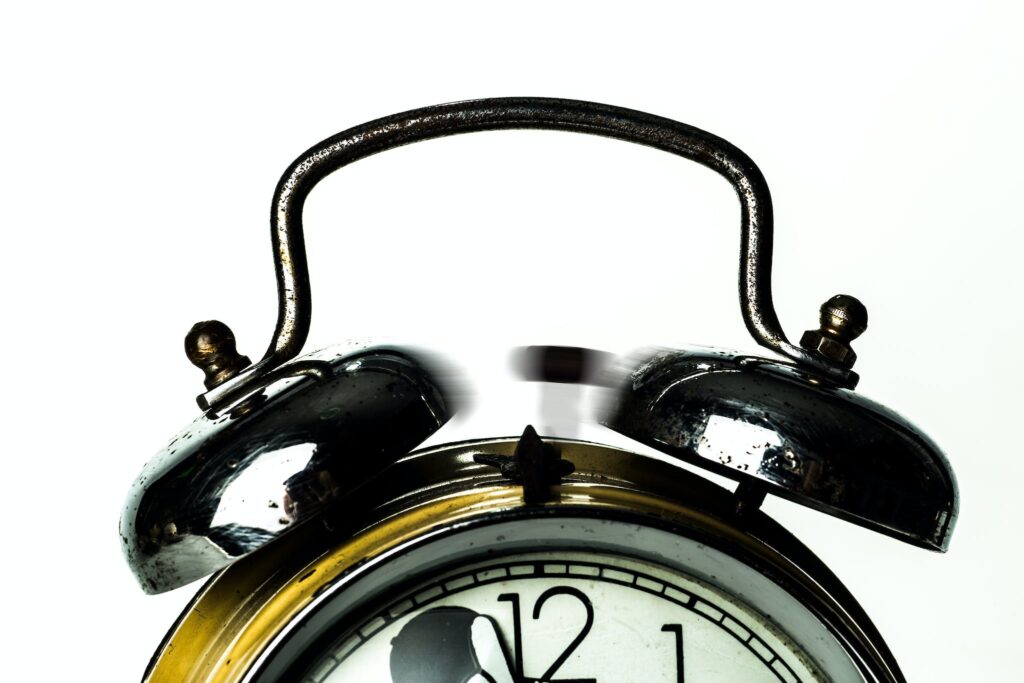
Sleep tracking technology has revolutionized the way we understand and improve our sleep. With the help of sleep tracking apps and devices, individuals can gain valuable insights into their sleep patterns and make informed decisions about their sleep habits. One of the key benefits of utilizing sleep tracking technology is the ability to identify and address sleep disturbances. Sleep tracking apps and devices can detect disruptions in sleep, such as snoring or restless movements, providing users with a better understanding of their sleep quality.
Moreover, sleep tracking technology can also aid in establishing healthy sleep habits. By tracking factors like sleep duration and bedtime routines, individuals can identify patterns that may be affecting their sleep. This information allows users to make necessary adjustments, such as setting consistent bedtimes or eliminating sleep distractors, to improve the quality of their sleep. With the ability to track sleep on a regular basis, individuals can monitor the effectiveness of these changes and make further adjustments as needed.
In conclusion, the benefits of utilizing sleep tracking technology are numerous. From identifying sleep disturbances to establishing healthy sleep habits, sleep tracking apps and devices offer valuable insights that can lead to improved sleep quality. By arming individuals with detailed data about their sleep patterns, sleep tracking technology empowers users to take control of their sleep and make necessary changes for a better night’s rest. So, if you are looking to optimize your sleep and enhance your overall well-being, incorporating sleep tracking technology into your routine may be a wise choice.
Enhancing Sleep Quality with Sleep Tracking Apps and Devices
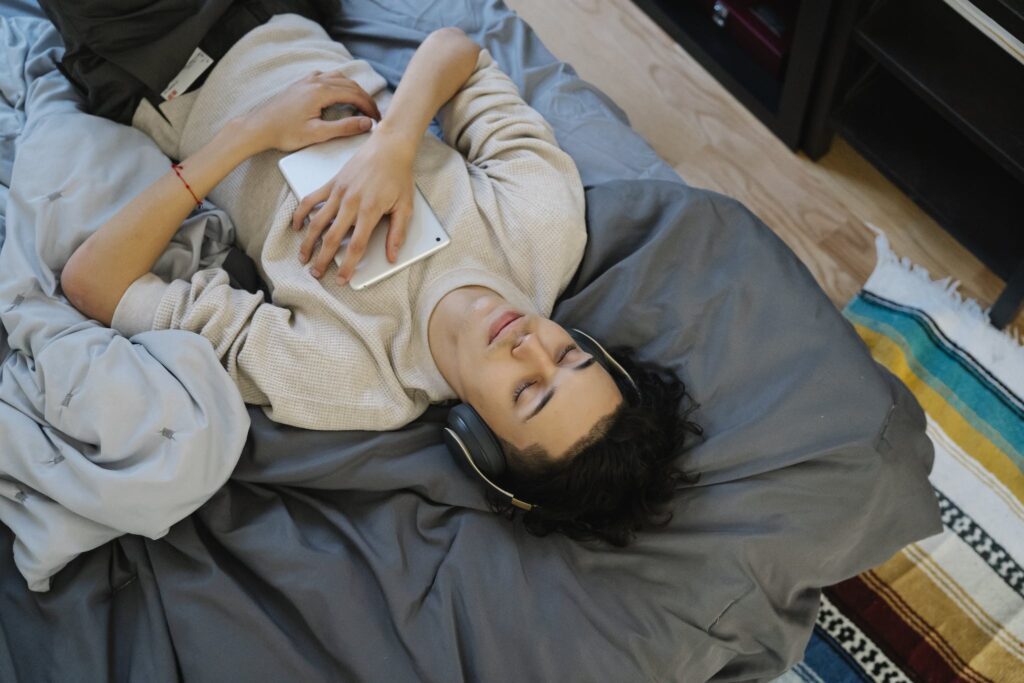
Sleep tracking apps and devices have become increasingly popular tools for individuals seeking to enhance the quality of their sleep. These innovative technologies offer valuable insights into one’s sleep patterns, allowing users to identify potential issues and make informed adjustments to their routines. By monitoring important parameters such as sleep duration, efficiency, and disturbances, sleep tracking apps and devices can assist users in gaining a deeper understanding of their sleep quality.
One of the primary benefits of utilizing sleep tracking apps and devices is the ability to track sleep stages throughout the night. These stages include light sleep, deep sleep, and rapid eye movement (REM) sleep. By monitoring these stages, individuals can identify any irregularities or disturbances that may be affecting their sleep quality. For instance, a sleep tracking app may notice frequent awakening during the night, indicating the potential presence of sleep apnea or other sleep disorders. With this information, users can consult medical professionals for accurate diagnosis and necessary treatment. Furthermore, sleep tracking apps and devices also provide data on sleep duration, offering users insight into whether they are getting enough restorative sleep each night.
In conclusion, sleep tracking apps and devices are valuable tools for those seeking to enhance the quality of their sleep. By monitoring sleep patterns, stages, and disturbances, users can gain a deeper understanding of their sleep quality and make informed adjustments to optimize their routines accordingly. However, it is essential to understand the limitations and potential drawbacks of relying solely on these technologies, such as their accuracy and reliability. Therefore, it is advised to supplement the information provided by sleep tracking apps and devices with professional advice from healthcare providers who can interpret the data accurately.
How Sleep Tracking Apps and Devices Can Improve Overall Health
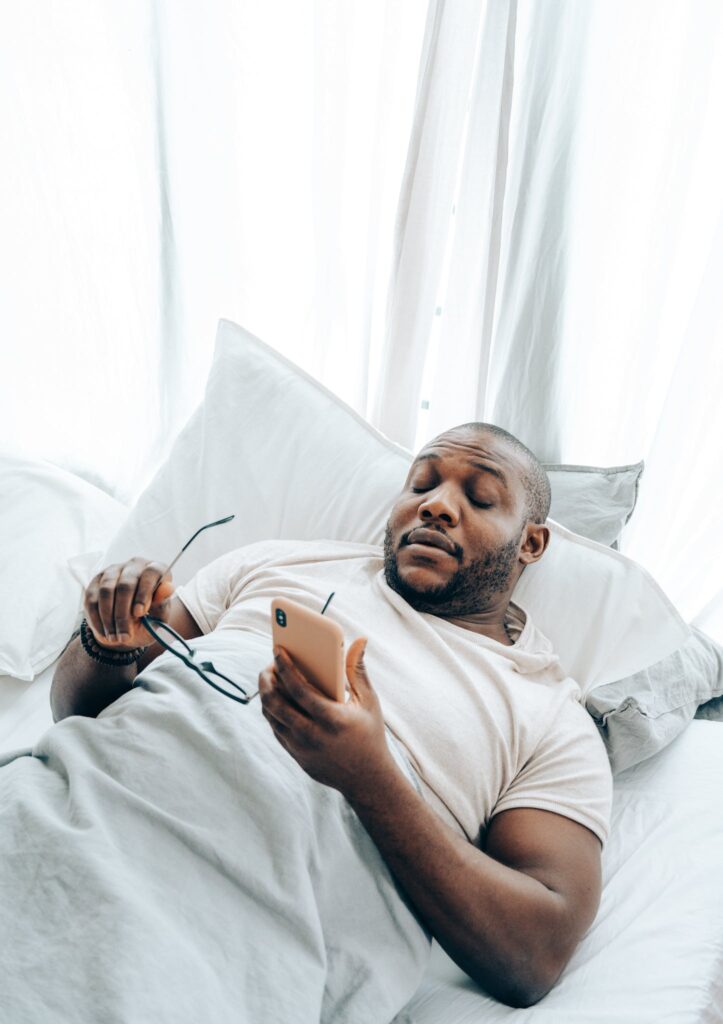
Sleep tracking apps and devices have gained popularity in recent years due to their potential to improve overall health. These tools provide valuable insights into your sleep patterns, allowing you to identify any issues that may be negatively impacting your sleep quality. By tracking factors such as sleep duration, sleep stages, and sleep efficiency, these apps and devices can help you make informed decisions to optimize your sleep and ultimately enhance your overall health.
One way sleep tracking apps and devices can improve overall health is by helping you establish healthier sleep habits. By providing you with a detailed analysis of your sleep patterns, these tools can assist in determining the optimal duration and timing of your sleep. By understanding the recommended sleep duration for your age group and specific sleep needs, you can adjust your bedtime routine and ensure that you are getting enough restorative sleep each night. This can lead to improved cognitive function, better mood regulation, and enhanced immune function, ultimately contributing to better overall health. Additionally, by tracking factors such as sleep stages and sleep quality, these apps and devices can help you identify sleep disturbances or disorders that may be affecting your health. This allows you to seek appropriate medical guidance and treatment if necessary, leading to better management of sleep-related conditions and improved overall well-being.
The Role of Sleep Tracking Technology in Identifying Sleep Disorders
Sleep tracking technology has emerged as a valuable tool in identifying sleep disorders by providing users with comprehensive data regarding their sleep patterns and behaviors. By utilizing advanced algorithms and sensors, these devices can monitor various parameters such as heart rate, breathing patterns, and movement during sleep. This data can then be analyzed to identify irregularities or abnormalities that may indicate the presence of a sleep disorder.
One of the key advantages of sleep tracking technology in diagnosing sleep disorders is its ability to provide objective and quantitative data. Traditionally, the diagnosis of sleep disorders relied heavily on subjective information provided by patients, which was often prone to inaccuracies and biases. With the help of sleep tracking devices, healthcare professionals can now access detailed information about a patient’s sleep architecture, sleep stages, and sleep efficiency. This objective data can significantly improve the accuracy of diagnoses and help healthcare providers recommend appropriate treatments or interventions.
While sleep tracking technology offers promising possibilities in identifying sleep disorders, it is important to note that it should not replace professional medical advice or formal diagnoses. Sleep trackers may provide insights into sleep patterns, but they are not equivalent to a clinical evaluation by a sleep specialist. These devices can be valuable tools to monitor sleep and gather data, but the interpretation and diagnosis should be done by qualified healthcare professionals who have the expertise to analyze the information in the context of a patient’s unique situation. Consulting with a sleep expert is essential to ensure accurate diagnosis and appropriate treatment for sleep disorders.
The Potential Drawbacks of Relying Solely on Sleep Tracking Apps and Devices
Sleep tracking apps and devices have become increasingly popular among individuals looking to improve their sleep quality. However, it is important to recognize that relying solely on these technologies may have potential drawbacks. One of the main concerns is the risk of self-diagnosis and misinterpretation of sleep data.
Sleep tracking apps and devices provide users with detailed information about their sleep patterns, such as sleep duration, sleep stages, and even snoring or movement during the night. While this data can be informative, it should not replace the expertise of a healthcare professional. It is crucial to remember that these technologies are not capable of diagnosing sleep disorders or other underlying medical conditions. Therefore, relying solely on sleep tracking apps and devices may lead to inaccurate self-diagnosis and delay in seeking appropriate medical advice.
Another drawback of relying solely on sleep tracking apps and devices is the potential for increased anxiety and obsession with sleep data. Some individuals may become overly focused on achieving perfect sleep scores or meeting certain sleep goals indicated by these technologies. This can create a negative cycle of stress and anxiety, which may actually be counterproductive to improving sleep. It is important to maintain a balanced approach and not become overly dependent on sleep tracking apps and devices as the sole determinant of sleep quality.
While sleep tracking apps and devices can be valuable tools for gaining insights into one’s sleep patterns, it is crucial to recognize their limitations and not solely rely on them for addressing sleep-related concerns. Consulting with a healthcare professional is essential for accurate diagnosis, interpreting sleep data, and developing a comprehensive plan to improve sleep quality. By combining the information provided by sleep tracking technologies with professional guidance, individuals can make informed decisions about their sleep habits and overall health.
Privacy Concerns Related to Sleep Tracking Apps and Devices
With the increasing popularity of sleep tracking apps and devices, concerns about privacy have arisen among users. Many people are worried about the data collected by these apps and devices and how it is being used or potentially shared with third parties. One of the main concerns is the possibility of sensitive information, such as sleep patterns and habits, being accessed by unauthorized individuals or entities.
Another privacy concern is the potential for sleep tracking apps and devices to collect additional data beyond sleep-related information. Some apps and devices may require access to personal data, such as location or contacts, which may raise concerns about the extent of data collection and its purpose. Users want to ensure that their personal information is being protected and that they have control over what data is collected and how it is used.
As sleep tracking technology continues to evolve, it is essential for users to understand the privacy policies and practices of the apps and devices they use. Being aware of the data being collected and how it is being managed can help users make informed decisions about their privacy and ensure their information is protected. It is advisable to review the privacy settings of sleep tracking apps and devices, adjust them as needed, and read the privacy policies thoroughly to understand what data is being collected and how it is being used.
The Accuracy and Reliability of Sleep Tracking Apps and Devices
Sleep tracking apps and devices have become increasingly popular as individuals seek to monitor and improve their sleep quality. However, one important aspect to consider is the accuracy and reliability of these tools. While sleep tracking apps and devices can provide useful insights, it is essential to understand their limitations and potential sources of error.
One factor that may impact the accuracy of sleep tracking apps and devices is their reliance on movement-based tracking. Most apps and devices use accelerometers to detect movement during sleep and determine sleep stages. However, this approach may not always accurately distinguish between different sleep stages, such as deep sleep and REM sleep. Additionally, factors such as body position, restless leg syndrome, or even sleeping with a partner can affect the accuracy of movement-based tracking.
Another consideration is that sleep tracking apps and devices may not capture aspects of sleep that cannot be detected through movement alone. For example, sleep apnea, a common sleep disorder characterized by periods of interrupted breathing during sleep, may not be accurately detected by these tools. Consultation with a healthcare professional and undergoing a sleep study remain crucial for diagnosing such conditions and receiving appropriate treatment.
It is worth noting that the accuracy and reliability of sleep tracking apps and devices can vary across different brands and models. Some companies have conducted validation studies to assess the performance of their devices against gold standard measures, such as polysomnography. Exploring user reviews and considering the credibility of the manufacturer can help in choosing a device or app that provides more accurate sleep data.
In conclusion, while sleep tracking apps and devices can offer valuable insights into sleep patterns, it is important to recognize their limitations. Factors such as movement-based tracking and the inability to detect certain sleep disorders may affect the accuracy and reliability of these tools. To ensure a comprehensive evaluation of sleep health, consulting with healthcare professionals and considering other diagnostic methods may be necessary.
Understanding the Limitations of Sleep Tracking Technology
Sleep tracking technology has undoubtedly made significant advancements in recent years, providing individuals with valuable insights into their sleep patterns and overall sleep quality. However, it is important to acknowledge the limitations of such devices and apps. One of the primary limitations is the reliance on the accuracy of the data collected. Sleep tracking apps and devices often rely on sensors and algorithms to detect sleep stages and analyze sleep quality. While these methods can provide helpful estimates, they are not always completely accurate in distinguishing between different sleep stages, such as deep sleep and REM sleep.
Another limitation of sleep tracking technology is the dependence on user interaction. Many apps and devices require individuals to manually input information about their sleep habits and daily routines. This can lead to discrepancies in data if users forget to provide accurate information or fail to consistently use the devices. Additionally, these apps and devices may not be able to account for other factors that can impact sleep quality, such as stress levels, environmental factors, or underlying health conditions. Consequently, the insights provided by sleep tracking technology should be interpreted with caution and used as a complement to professional advice rather than a definitive diagnostic tool.
Integrating Sleep Tracking Apps and Devices into Daily Routines
Sleep tracking apps and devices can be seamlessly integrated into daily routines, allowing individuals to monitor and optimize their sleep patterns. By incorporating these technologies into their bedtime rituals, individuals can gain valuable insights into their sleep quality and make informed decisions to improve their overall well-being.
One effective way to integrate sleep tracking apps and devices into daily routines is by establishing a consistent sleep schedule. These technologies can help users track their sleep-wake cycles and provide recommendations for setting regular bedtimes and wake-up times. By sticking to a consistent sleep schedule, individuals can enhance their sleep quality and promote a more restful night’s sleep.
In addition, sleep tracking apps and devices can also aid in the optimization of sleep environments. By monitoring factors such as room temperature, noise levels, and lighting conditions, these technologies can provide valuable feedback on potential disturbances that may hinder sleep quality. Users can then make necessary adjustments, such as investing in a sound machine or improving the room’s temperature control, to create a more conducive sleep environment.
Integrating sleep tracking apps and devices into daily routines can empower individuals to take charge of their sleep health. Whether it’s by establishing a consistent sleep schedule or optimizing sleep environments, these technologies can play a vital role in helping individuals achieve a better night’s sleep. By making sleep a priority and utilizing the insights provided by these technologies, individuals can reap the benefits of improved sleep quality and overall well-being.
Exploring the Different Types of Sleep Tracking Apps and Devices Available
There are numerous sleep tracking apps and devices available on the market today, each with its own unique features and capabilities. One popular type of sleep tracking app is the smartphone app. These apps use the phone’s accelerometer and microphone to detect movement and sounds during sleep, providing insights into sleep quality and detecting any disturbances or disruptions in the sleep pattern. Some examples of smartphone sleep tracking apps include Sleep Cycle, SleepScore, and Pillow.
Another type of sleep tracking device is the wearable sleep tracker. These devices are typically worn on the wrist like a watch and use sensors to monitor various metrics during sleep, such as heart rate, body temperature, and movement. Wearable trackers can provide more detailed and accurate data compared to smartphone apps, as they are specifically designed to track sleep. Popular wearable sleep trackers include Fitbit, Garmin, and Oura Ring.
It’s important to note that while sleep tracking apps and devices can provide valuable information about sleep patterns, they are not medical devices and should not be used as a substitute for professional medical advice or diagnosis. It is always recommended to consult with a healthcare professional if you have concerns about your sleep or suspect you may have a sleep disorder.
Tips for Choosing the Right Sleep Tracking App or Device for Your Needs
When it comes to choosing a sleep tracking app or device to meet your specific needs, it is important to consider a few key factors. Firstly, consider the type of data you are interested in tracking. Are you solely interested in monitoring your sleep duration, or would you also like to track other factors such as sleep quality, heart rate variability, or sleep stages? Understanding the specific metrics that are important to you will help guide your decision-making process.
Secondly, consider the usability and user interface of the app or device. Is the interface intuitive and easy to navigate? Does it offer features such as data visualization or personalized insights? A user-friendly interface can enhance your overall experience and make it easier to interpret and utilize the data collected.
Thirdly, take into account the compatibility of the app or device with your existing technology. Will it sync seamlessly with your smartphone or other devices that you typically use? Ensuring compatibility will make it easier to access and review your sleep data conveniently.
Lastly, consider the reliability and accuracy of the sleep tracking app or device. Look for products that have been clinically validated and supported by scientific research. Checking for user reviews and testimonials can also provide insight into the performance and accuracy of the app or device.
By carefully considering these factors, you can choose a sleep tracking app or device that best suits your specific needs and helps you achieve your sleep goals. Remember that selecting the right tool is just the first step – it’s also important to prioritize healthy sleep habits and consult with a healthcare professional for interpreting sleep tracking data.
Here’s a table summarizing tips for choosing the right sleep tracking app or device for your needs:
| Tips for Choosing the Right Sleep Tracking App or Device | Considerations and Recommendations | Credible Source |
|---|---|---|
| Define Your Sleep Tracking Goals | Identify your specific sleep-related goals, such as monitoring sleep duration, analyzing sleep patterns, or addressing specific sleep issues. Choose an app or device aligned with your objectives. | National Sleep Foundation – How Sleep Trackers Work |
| Check Compatibility with Devices | Ensure that the sleep tracking app or device is compatible with your existing devices (smartphones, smartwatches, etc.) and operating systems. This ensures seamless integration into your daily routine. | CNET – How to Choose the Best Sleep Tracker for You |
| Review User Reviews and Ratings | Explore user reviews and ratings on app stores or online forums. Real-world experiences from other users can provide insights into the reliability and user-friendliness of the sleep tracking app or device. | Consumer Reports – Sleep-Tracking Devices: Do They Work? |
| Consider Data Accuracy and Validity | Evaluate the accuracy of the sleep tracking data provided by the app or device. Look for features such as the ability to differentiate between sleep stages and provide meaningful insights into your sleep patterns. | Journal of Sleep Research – Consumer sleep trackers: is there a baby in the bathwater? |
| Assess Battery Life and Charging Requirements | Consider the battery life of the device and whether it aligns with your preferences. Some devices may need frequent charging, while others offer longer battery life. Choose one that fits your lifestyle. | SleepScore Labs – How Do Sleep Trackers Work? |
| Check for Integration with Health Apps | If you use other health and wellness apps, check whether the sleep tracking app or device integrates with them. This can provide a more comprehensive overview of your overall health and habits. | Healthline – Best Sleep Tracking Apps |
| Privacy and Data Security Features | Ensure that the sleep tracking app or device prioritizes user privacy and has robust data security features. Understand how your sleep data is stored, shared, and protected. | HBR – How Sleep-Tracking Apps Actually Work |
| Trial Periods and Money-Back Guarantees | Some apps or devices may offer trial periods or money-back guarantees. Take advantage of these options to test the sleep tracking capabilities and determine if they meet your expectations. | Sleep Foundation – The Best Sleep Trackers for 2021 |
How Sleep Tracking Apps and Devices Can Help in Establishing Healthy Sleep Habits
Sleep tracking apps and devices have emerged as valuable tools for individuals seeking to establish healthy sleep habits. By providing detailed insights into sleep patterns and behaviors, these technologies offer users the opportunity to gain a deeper understanding of their sleep quality and make informed changes to improve it.
One of the key ways in which sleep tracking apps and devices help in establishing healthy sleep habits is by tracking sleep duration. Many people underestimate the importance of getting adequate sleep each night, and as a result, may unknowingly suffer from chronic sleep deprivation. Sleep tracking technologies can help individuals accurately measure the duration of their sleep, allowing them to identify any patterns of insufficient rest. Armed with this information, users can then prioritize sleep and make adjustments to their daily routines to ensure they are getting enough rest.
In addition to tracking sleep duration, sleep tracking apps and devices also monitor sleep quality. Through the analysis of factors such as restlessness, awakenings, and sleep stages, these technologies provide users with valuable insights on the overall quality of their sleep. Armed with this data, individuals can identify potential disruptions or areas for improvement, such as reducing stress before bed, optimizing bedroom environment, or adjusting sleep schedules. By making targeted changes based on these insights, individuals can gradually establish healthier sleep habits and optimize their overall well-being.
It is important to note, however, that while sleep tracking apps and devices can provide helpful information, they should be used as a complementary tool and not a replacement for professional medical advice. If an individual is experiencing persistent sleep issues or suspects a sleep disorder, it is crucial to consult a healthcare professional who can provide a comprehensive evaluation and appropriate guidance.
Seeking Professional Advice for Interpreting Sleep Tracking Data
Sleep tracking data can be a valuable tool to help individuals understand their sleep patterns and make informed decisions about their sleep health. However, interpreting this data accurately requires expertise and professional guidance. Seeking advice from healthcare professionals, such as sleep specialists or physicians with expertise in sleep medicine, can provide a deeper understanding of the data and its implications for overall health.
These professionals can help individuals navigate the complexities of sleep tracking data, ensuring that the information is interpreted correctly and any potential issues or abnormalities are identified. They can provide personalized insights based on the data, considering factors such as medical history, sleep disorders, and lifestyle habits. With their expertise, healthcare professionals can guide individuals in utilizing the data to make appropriate adjustments and improvements to their sleep routines. It is important to remember that sleep tracking apps and devices are not a substitute for medical advice, and consulting with a professional can offer a more comprehensive evaluation of sleep patterns and potential underlying issues.
How can sleep tracking technology benefit us?
Sleep tracking technology can provide valuable insights into our sleep patterns, duration, and quality, helping us understand our sleep habits and make necessary adjustments for better sleep.
Can sleep tracking apps and devices improve the overall quality of sleep?
Yes, sleep tracking apps and devices can enhance sleep quality by tracking factors such as sleep duration, sleep stages, and disturbances, allowing individuals to identify patterns and make changes to promote better sleep.
How can sleep tracking apps and devices contribute to overall health?
Sleep tracking technology can play a role in improving overall health by helping individuals establish healthy sleep patterns, identifying potential sleep disorders, and providing data for healthcare professionals to analyze and diagnose sleep-related issues.
Are there any drawbacks to relying solely on sleep tracking apps and devices?
While sleep tracking apps and devices can be useful tools, they should not replace professional medical advice. They may not always provide accurate data or successfully diagnose sleep disorders, so it’s important to consult with a healthcare professional for a comprehensive evaluation.
Are there any privacy concerns related to sleep tracking apps and devices?
Privacy concerns regarding sleep tracking apps and devices involve the potential collection and sharing of personal data. It is important to carefully review privacy policies and ensure the security of any data shared with these apps or devices.
How accurate and reliable are sleep tracking apps and devices?
The accuracy and reliability of sleep tracking apps and devices can vary. While many provide useful information, they may not always reflect precise sleep stages or disturbances. Consulting with healthcare professionals can help ensure accurate interpretation of the data.
What are the limitations of sleep tracking technology?
Sleep tracking technology may have limitations in accurately determining sleep stages, detecting certain sleep disorders, and accounting for external factors that may impact sleep quality. It is important to consider these limitations when interpreting the data.
How can sleep tracking apps and devices be integrated into daily routines?
Sleep tracking apps and devices can be integrated into daily routines by setting consistent sleep schedules, using features like bedtime reminders or wind-down routines, and reviewing sleep data regularly to make adjustments and establish healthier sleep habits.
What types of sleep tracking apps and devices are available?
There are various types of sleep tracking apps and devices available, including smartphone apps, wearable devices, and smartwatches. They may differ in features, accuracy, and convenience, so it is important to choose one that suits your specific needs.
Any tips for choosing the right sleep tracking app or device?
When selecting a sleep tracking app or device, consider factors such as accuracy, ease of use, compatibility with your devices, available features, and customer reviews. It is also helpful to consult with healthcare professionals for recommendations.
How can sleep tracking apps and devices help establish healthy sleep habits?
Sleep tracking apps and devices can aid in establishing healthy sleep habits by providing insights into sleep patterns, helping set consistent sleep schedules, and suggesting improvements based on data analysis. This can lead to better sleep quality and overall well-being.
Should professional advice be sought when interpreting sleep tracking data?
Yes, seeking professional advice when interpreting sleep tracking data is recommended. Healthcare professionals can provide a comprehensive evaluation, help identify potential sleep disorders, and guide individuals in making necessary lifestyle changes for better sleep.


